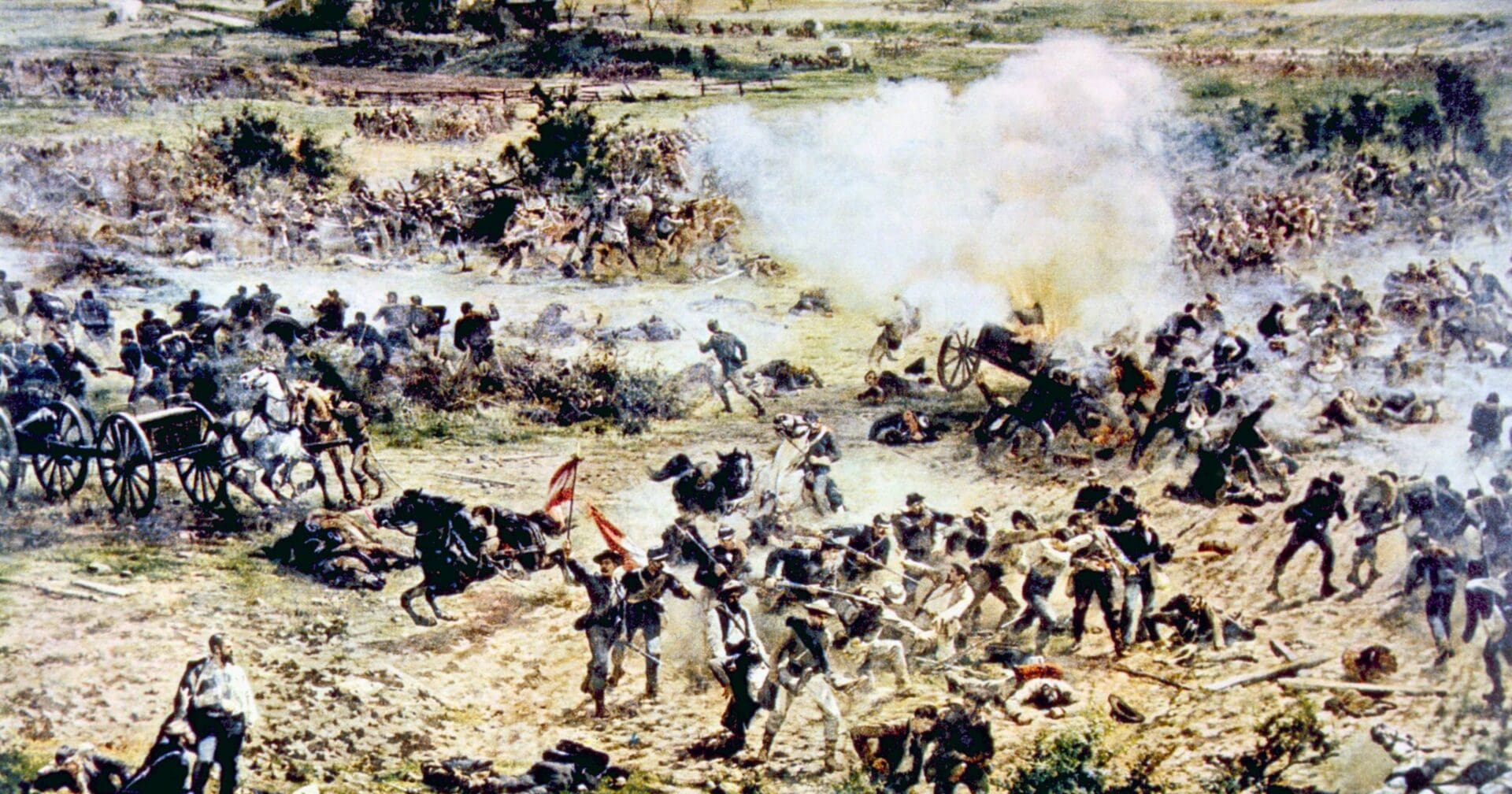On April 12, 1861, Confederate forces began bombarding Fort Sumter in Charleston, South Carolina. What would come to follow that first shot would be four years of some of the worst battles and blood shed the United States of America has ever seen. Only three days before the celebration of the United States day of independence from British rule, the largest battle of the Civil War took place on July 1st in Gettysburg, Pennsylvania. It saw over 50,000 casualties spanning three days of fighting. Tales of chivalry and bravery abound the Battle of Gettysburg. One of these heroic tales is that of Father William Corby, who gave general absolution to 530 men before marching into the throes of battle.
William Corby was born October 2, 1833 in Detroit, Michigan to an Irish immigrant father and a Canadian immigrant mother. He attended public school until the age of 16, when he left high school early to work with his father at his real estate company. In 1853, he enrolled at the College of Notre Dame in Sound Bend, Indiana to study for the priesthood. After his ordination, he was assigned to the local parish and stayed to teach theology at Notre Dame.
Father Corby was originally never supposed to be the army priest for the Irish Brigade, the infantry brigade made of Irish American immigrants that fought during the Civil War. When the brigade was formed days after the first cannons fired on Fort Sumter, Archbishop John Hughes assigned Father Thomas Mooney as the chaplain to the Irish Brigade. However, he was a young and immature man, and in his impetuosity publicly baptized a new cannon to an audience of many people. The Archbishop learned of his spectacle and had him removed as the chaplain, and Father Corby was assigned in his stead.
Around noon on the July 2, 1863 the remaining 530 men out of an original 3000 of the Irish Brigade were being held in reserve on Cemetery Ridge while the battle raged on at Little Round Top. They came under Confederate fire and received the order to march to fight. While the Irishmen gathered their weapons and supplies, Father William Corby called the company to attention. While he couldn’t hear their individual confessions, he told them he could give them general absolution during such times of grave peril. He told the 530 men to confess their sins, ask for God’s forgiveness, and silently recite the Act of Contrition. Father Corby took out a violet stole from his pocket and draped it on himself, while the men knelt to the ground and removed their hats. He made the sign of the cross over them and recited the words of absolution:
“May Our Lord Jesus Christ absolve you, and I, by His authority, absolve you from every bond of excommunication and interdict, insofar as it lies within my power and you require; therefore, I absolve you from your sins, in the Name of the Father, and of the Son, and of the Holy Ghost. Amen.”
While giving general absolution to soldiers readying for battle was common in Europe, it is said that this was the first time it had occurred in the United States. On that day of fighting, 27 men were killed, 109 were wounded, and 62 were missing in action. At the Gettysburg National Military Park, a statue was erected in his honor. The large bronze statue, the Father William Corby Monument, stands resolute on the very rock he gave absolution to those 530 brave men before marching into the heat of battle to fight for their country.
Photo credit: Everett Collection / Shutterstock.com














